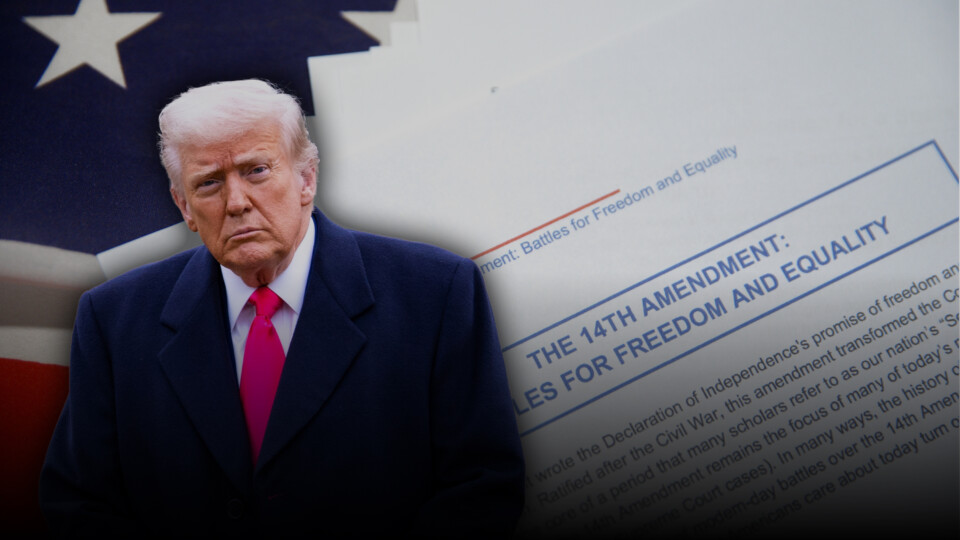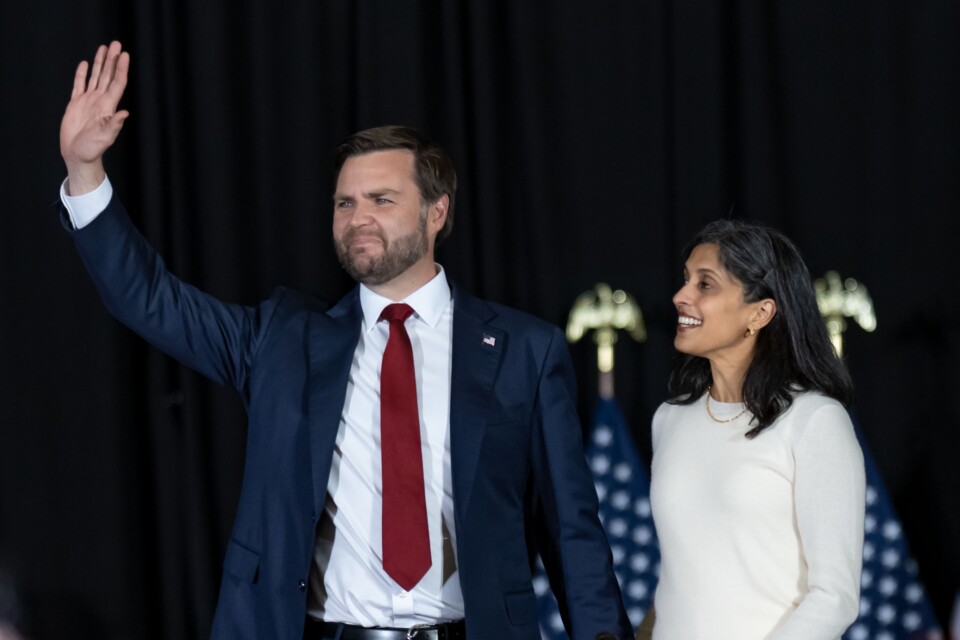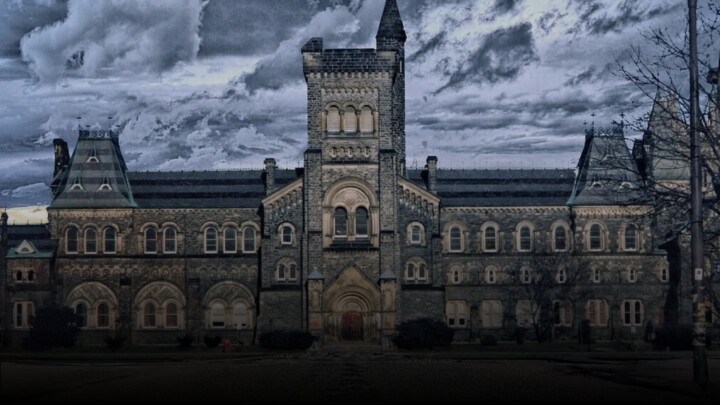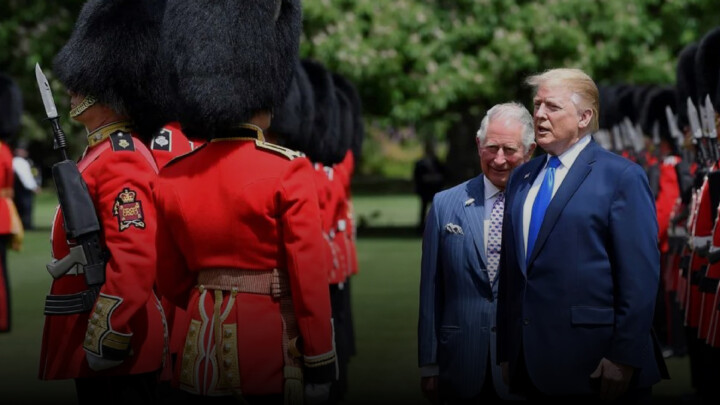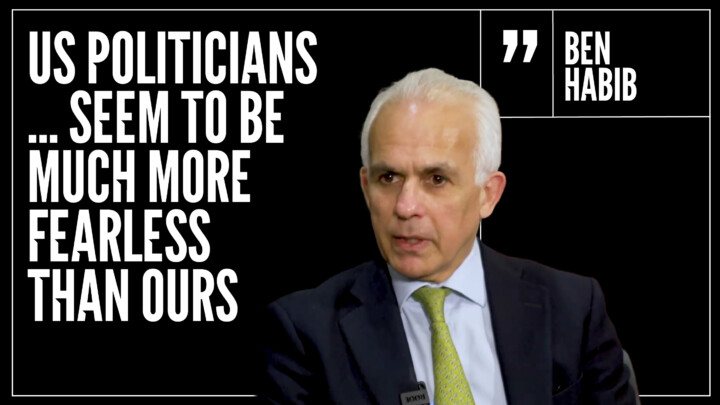|
With that conflation of all immigrants — regardless of quality, origin, or legality of entry — into one category (or class) of “immigrant”, Brennan abolishes any meaningful distinction between Americans and anyone else. The narrative that “America is a nation of immigrants” seems to render the believer incapable of distinguishing between immigrants as individuals, on the basis of their virtues, their contributions to America’s economy and culture, and their respect for the law. In doing so, Brennan devalues the citizenship that the likes of Ayaan Hirsi Ali was given by the American people in her time of need, by handing it to anyone who crosses the Southern Border. Can Brennan really not see the difference between Ayaan, and the thousands of Tren de Aragua and MS-13 criminals let in by the Biden administration? Is the whole world simply Americans-in-waiting?
Brennan’s common belief also implies that America could be anywhere else, invented by anyone else. But the truth is, it could not. Somalia, for example, is incapable of recreating the greatness of America, with its current clannish family structures, recent history of corrupt socialist government, and seventh century Sharia legal system. The people have not been properly habituated over generations to be receptive to a system of government, based on truths that Americans hold to be self-evident. This is why the Bush doctrine of toppling dictators to install democracies in the Middle East resulted in Islamist groups rushing in to fill the power vacuum. America’s particular mix of English civic associations, grace-through-works Protestantism, and fertile farmland produced its frontier spirit, Great Awakening, and constitutional republicanism.
America, as Samuel Huntington writes, is not a nation of immigrants, but was founded by Puritan settlers from England, who imported their faith, common law legal system, and social fabric.
“Settlers leave an existing society, usually in a group, in order to create a new community, a city on a hill, in a new and often distant territory. They are imbued with a sense of collective purpose. […]
Immigrants, in contrast, do not create a new society. They move from one society to a different society. Migration is usually a personal process, involving individuals and families, who individually define their relation to their old and new countries. […]
Before immigrants could come to America, settlers had to found America.”
Without the traditions of this tribe, the relative peace and prosperity of America’s limited government enjoyed today would not be possible. To radically change the culture and character of this country, with the blind belief that all immigrants are indistinguishable, would make America unrecognisable, and the American Dream inaccessible to all immigrants and those of Founding stock alike.
This qualitative difference between immigrants is what Ayaan explained in her Oakeshott Lectures address last year. The city states of the ancient world bound up many moral obligations in their version of citizenship. They were collections of families who intermarried to form tribes, and who worshipped the same gods. Homes were temples to patrilineal ancestors, buried in the foundations of the city state. Offerings were made to them at mealtimes; and tribes came together to worship common heroes, or gods of common places or principles, which united their families. The definition of a citizen was “a man who had the religion of the city.’’ Your identity was not your race, or sexuality, or what made you different from others; but rather the ties of blood and belief that you shared with those around you.
It is this unified sense of self — as a people, with a shared faith, in a particular place — which gives a nation the courage to defend itself. As Larry Sidentop wrote, in Inventing the Individual,
“There was nothing self- serving, abstract or sentimental about ancient patriotism.
The ancient citizen saw himself as defending the land of his ancestors, who were also his gods. His ancestors were inseparable from the ground of the city. To lose that ground was to lose the gods of the family. Indeed, the loss of the city meant that the gods had already abandoned it.”
This same version of citizenship persists in a place like Israel today: where its young people enlist in the IDF, because they feel they are defending the land of their ancestors, as given to them by God, from an existential threat. It is these factors — family, faith, familiarity, duty — which make a nation a home. A reversion to this understanding of citizenship, with centuries of historical precedent, and consistent with our intuitions, would be healthier than basing border policy on an anachronistic, optimistic blank-slate version of human nature.
This is why the Vice President is right to say that the Christian thing to do is for Americans to extend love out as far as concentric circles of familiarity allow (ordo amoris). We can pray and make sacrifices for members of our family, our friends, our local community, and our church congregation. We can do a service to our nation — but even the extent of that good is limited. You might enlist in the military to protect your country, as Vice President Vance did — but there is no guarantee you will be deployed in a just war. You might think paying your taxes to be spent on overseas aid is helping those less fortunate than your countrymen — but as USAID shows, you don’t know where that money is going, and if it’s doing any good. When you try to do good beyond your borders, the likelihood that you will be effective begins to decline.
|


